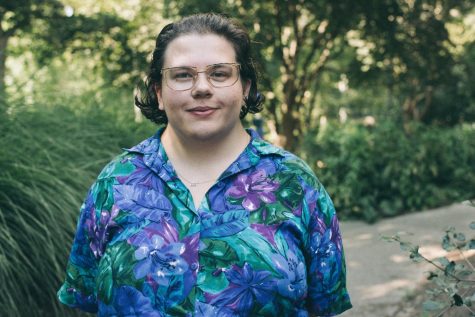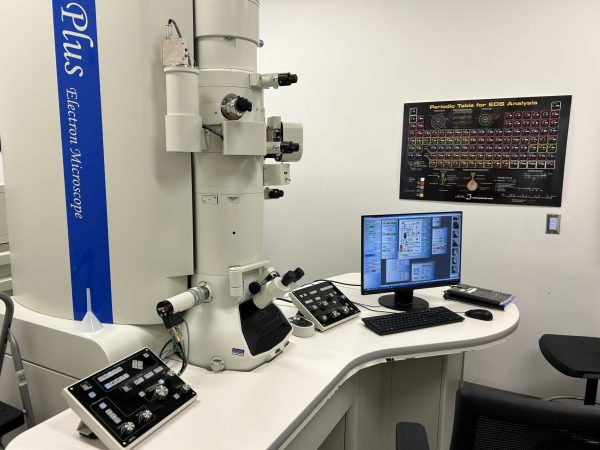Gamma Rho Lambda: Welcome to the Family
A product of her environment, Chloe Krueger, a senior, is a self-described “total effing liberal hippie.”
“Being a multicultural woman, I knew I did not fit into a white space,” Krueger said. “I [also] didn’t really fit into an Asian space when it came to Greek life.”
She was looking for a place where her intersectionalities came in contact and flourished. She found this space with Gamma Rho Lambda, American University’s multicultural, LGBTQIA+, siblinghood.
“Having this multicultural, LGBTQ inclusive space was amazing,” Krueger said. “I wasn’t finding these niche spaces for me until I found Gamma Rho Lambda.”
GRL is a nationally recognized sorority founded at the University of Arizona, Tempe, in 2003. The AU chapter, Pi, was created in 2013 and is one of 16 chapters across the country. It is not a part of the Panhellenic Council or the Interfraternity Council at AU. GRL’s practices are based on the Divine Nine, a group of historically black sororities and fraternities.
“We take trans women, cis women, trans men, nonbinary people… basically anyone who’s comfortable with the label ‘sorority.’”
As a nod to inclusivity, the sorority now calls members “siblings,” instead of “sisters,” reflecting the diverse gender identities of its members.
“We take trans women, cis women, trans men, non-binary people… basically, anyone who’s comfortable with the label ‘sorority,’” senior Caelan Tietze said.
The group works to be inclusive towards those with disabilities, designing their posters to be easily read, captioning all images and remaining seated while reciting part of their probate.
As a nod to inclusivity, the sorority now calls members “siblings,” instead of “sisters,” reflecting the diverse gender identities of its members.
Many members join GRL because they feel that it represents multiple facets of their identities.
“There are people in our sorority who didn’t want to join a historically black organization because they felt that would ignore their sexual orientation, but who also didn’t want to join a lesbian sorority because they felt it would ignore their heritage,” Tietze said. “We value both aspects.”
And they aren’t the only ones who do. When activist and actress Laverne Cox spoke at AU, members of GRL extended honorary siblinghood to her during the Q&A portion of the event.
“Laverne Cox, as a trans woman, sits in with what GRL is all about,” said senior Naomi Waltengus, a former GRL sibling. “She is a woman in our siblinghood. Although we take in gender non-conforming people as well, GRL is a siblinghood mostly constituted by women. Whether you are cis or trans doesn’t matter. It was really cool that we got the opportunity to invite her.”
On campus, a large part of GRL’s advocacy is geared toward the inclusion of intersectional voices in different conversations. Because their focus is on intersectionality, Krueger says that when in spaces with people of color, GRL stands for the LGBTQIA+ community, and when in LGBTQIA+ spaces they represent people of color.
“The gay community is far more accepted and talked about and there are way more resources than [for] people of color,” she said. “And it’s changing, but that is the reality of it.”

Senior studying journalism and computer science. Has been known to cry over Chicago. I'm really interested in figuring out how journalism can be used as...






